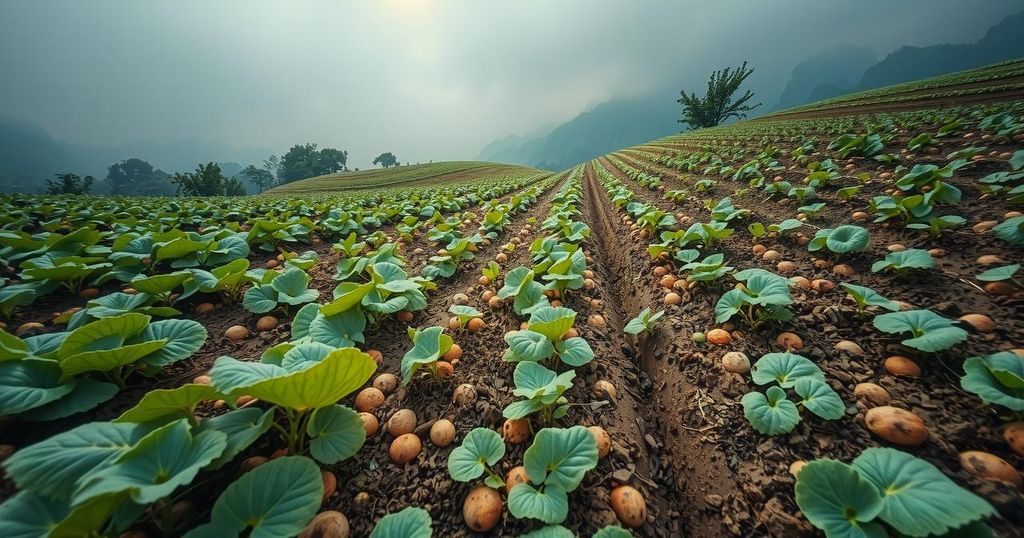Molecular biologist Li Jieping and his team at the International Potato Center are studying the effects of rising temperatures on potato yields in China. Their research indicates substantial reductions in potato size and yields, threatening food security for the world’s leading potato producer. The study calls for immediate adaptation strategies for farmers to combat impending climate challenges.
In response to the anticipated increase in temperatures influenced by climate change, a team of researchers led by molecular biologist Li Jieping at the International Potato Center (CIP) in Beijing is conducting experiments to determine the impact on potato yields. Their studies reveal that potatoes cultivated under conditions simulating future climate scenarios are considerably smaller and yield less than half the amount of larger varieties traditionally grown in China.
Approximately 22 percent of the world’s potato supply originates from China, underscoring the significance of this research for global food security. The team’s three-year study focused on two prevalent potato varieties in the region and found that while growth was expedited by ten days under increased temperatures—averaging 3 degrees Celsius higher than the current norms—overall yield suffered dramatically. Such climatic stressors raise alarming concerns about food production in the world’s largest potato supplier.
Li Jieping expressed apprehensions regarding the long-term implications, emphasizing potential declines in tuber production which would ultimately affect food security and farmer economics. As climate models predict a troubling increase of 3.1 degrees Celsius above pre-industrial levels by the year 2100, the researchers posit that adaptations are imperative. Farmers may need to adjust planting schedules or relocate to higher altitudes to mitigate heat exposure. In regions such as Inner Mongolia, the urgency is compounded by the necessity to harvest rapidly before adverse weather strikes, challenging farmers to seek more resilient and disease-resistant varieties.
The international acknowledgment of agriculture’s vulnerability to climate change has compelled scientists to explore adaptive strategies. Potatoes, as a staple food and a significant crop in China, face heightened risks from rising temperatures. Current studies indicate that expected climate conditions can amplify yield loss while simultaneously decreasing the size of the crops produced. The urgency of addressing these challenges is critical, as China leads in global potato production. Understanding these trends is pertinent for food stability and farmer livelihoods as environmental conditions continue to deteriorate due to human-induced climate change.
The findings of Jieping and his team highlight the pressing challenges presented by climate change to potato yields in China. With the potential for drastically reduced yields and smaller specimens, there is an urgent need for farmers to adapt their practices, whether by altering planting times or shifting to elevated regions. As global temperatures continue to rise, addressing agricultural vulnerabilities becomes crucial in ensuring food security and farmer prosperity.
Original Source: www.outlookbusiness.com






